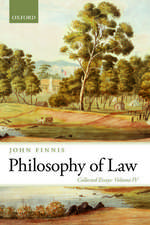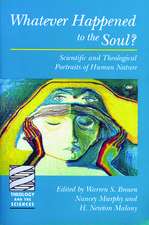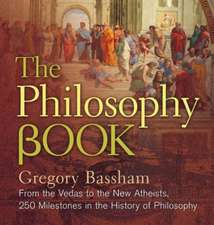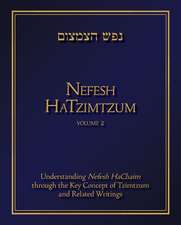Tillich and the Abyss: Foundations, Feminism, and Theology of Praxis
Autor Sigridur Gudmarsdottiren Limba Engleză Hardback – 31 aug 2016
This book examines Paul Tillich´s theological concept of the abyss by locating it within the context of current postmodern antifoundalist discussions and debates surrounding feminism, gender, and language. Sigridur Gudmarsdottir develops these tropes into a constructive theology, arguing that Tillich’s idea of the abyss can serve as a necessary means of deconstructing the binaries between the theoretical and the practical in producing nihilistic relativism and the safe foundations of knowledge (divine as well as human).
How does one search for a map and method through an abyss? In his writings, Tillich expressed the ambiguity and groundlessness of being, the depth structure of the human condition, and the reality of God as an abyss. The more we gaze into this abyss, the more we encounter the faults in our various foundations. This book outlines how Tillich’s concept of the abyss creates greater opportunities for complexity and liminality and opensup a space where life and death, destruction and construction, fecundity and horror, womb and tomb, can coincide.
| Toate formatele și edițiile | Preț | Express |
|---|---|---|
| Paperback (1) | 634.32 lei 6-8 săpt. | |
| Springer International Publishing – 12 iun 2018 | 634.32 lei 6-8 săpt. | |
| Hardback (1) | 638.89 lei 6-8 săpt. | |
| Springer International Publishing – 31 aug 2016 | 638.89 lei 6-8 săpt. |
Preț: 638.89 lei
Preț vechi: 751.64 lei
-15% Nou
Puncte Express: 958
Preț estimativ în valută:
122.25€ • 126.12$ • 102.02£
122.25€ • 126.12$ • 102.02£
Carte tipărită la comandă
Livrare economică 26 martie-09 aprilie
Preluare comenzi: 021 569.72.76
Specificații
ISBN-13: 9783319336534
ISBN-10: 3319336533
Pagini: 204
Ilustrații: IX, 193 p.
Dimensiuni: 148 x 210 x 17 mm
Greutate: 0.38 kg
Ediția:1st ed. 2016
Editura: Springer International Publishing
Colecția Palgrave Macmillan
Locul publicării:Cham, Switzerland
ISBN-10: 3319336533
Pagini: 204
Ilustrații: IX, 193 p.
Dimensiuni: 148 x 210 x 17 mm
Greutate: 0.38 kg
Ediția:1st ed. 2016
Editura: Springer International Publishing
Colecția Palgrave Macmillan
Locul publicării:Cham, Switzerland
Cuprins
1. Natal and Nihilistic Theological Foundations.- 2. Kataphatic Identity and Religious Symbolism.- 3. Affective Bodies and Agape Desire.- 4. Khoric Speculation and Maps of Difference.- 5. Apophatic Silence and Displacements.
Notă biografică
Sigridur Gudmarsdottir holds a PhD in constructive theology. She teaches philosophy of religion at the University of Iceland and works as a rural dean in the Lutheran Church of Norway. She lives near the Polar circle and her research weaves together pastoral praxis and academic theory on the edge of the abyss.
Textul de pe ultima copertă
This book examines Paul Tillich´s theological concept of the abyss by locating it within the context of current postmodern antifoundalist discussions and debates surrounding feminism, gender, and language. Sigridur Gudmarsdottir develops these tropes into a constructive theology, arguing that Tillich’s idea of the abyss can serve as a necessary means of deconstructing the binaries between the theoretical and the practical in producing nihilistic relativism and the safe foundations of knowledge (divine as well as human).
How does one search for a map and method through an abyss? In his writings, Tillich expressed the ambiguity and groundlessness of being, the depth structure of the human condition, and the reality of God as an abyss. The more we gaze into this abyss, the more we encounter the faults in our various foundations. This book outlines how Tillich’s concept of the abyss creates greater opportunities for complexity and liminality and opens up a space where life and death, destruction and construction, fecundity and horror, womb and tomb, can coincide.
Caracteristici
Advances the study of the often overlooked theological theme of the abyss (drawing on postmodern thinking) Highlights and discusses Paul Tillich's use of the feminine and feminine metaphors, placing him in rich dialogue with modern feminist philosophers Pulls contemplative and mystical thinkers like Jakob Boehme and Meister Eckhart into conversation with feminist philosophers












